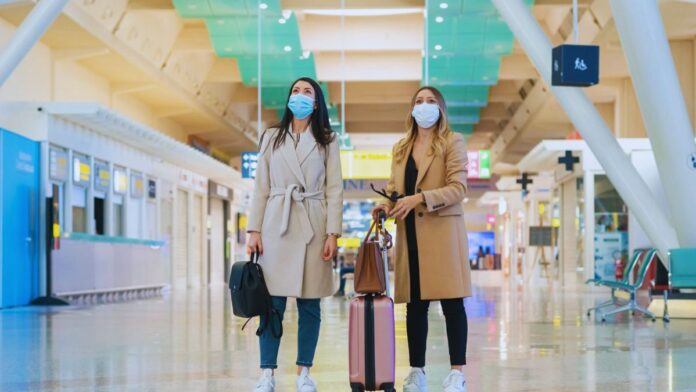In recent developments, countries, including India, China, the UK, and the US, are witnessing a surge in virus cases, with the World Health Organization (WHO) officially announcing the Omicron JN.1 variant as a new strain of the COVID-19 virus. Concerns are growing globally, prompting health authorities to take swift action to curb the spread of the virus.
Omicron JN.1 Variant and Increased Cases
The Omicron JN.1 variant has been identified in various countries, leading to heightened precautions. According to the US Centers for Disease Control and Prevention (CDC), strict preventive measures must be enforced, including mandatory protective measures such as masks or possibly more stringent measures, as the Dubai Health Care Authority suggested.
Karnataka Government’s Response
In India, the state government of Karnataka has issued guidelines urging individuals above 60 years, those with pre-existing conditions like heart and respiratory diseases, and individuals experiencing symptoms like fever and respiratory distress to wear masks. Additionally, residents are advised to remain vigilant during the winter season, especially those traveling abroad from the UAE.
New Coronavirus Variant Concerns
As worries escalate regarding the emergence of the new coronavirus variant, the Karnataka government is urging residents to be cautious. Preventive measures such as wearing masks are mandated for those susceptible to allergies, including those with sinusitis and asthma.
Expert Advice on Staying Safe
Dr. Mais M Mauwfak, at Thumbay Hospital, Ajman, emphasizes the importance of maintaining hygiene and wearing masks. He advises, “People with conditions like diabetes, prone to non-communicable diseases, should prioritize health before travel. Additionally, individuals with allergies, like sinusitis and asthma, must proactively manage symptoms during travel.”
Importance of Isolation and Early Medical Attention
Isolation is crucial for individuals displaying symptoms or those diagnosed with COVID-19. Dr. Rania Zein Eldien, a respiratory specialist at Burjeel Hospital in Abu Dhabi, stresses the need for immediate medical attention for those experiencing symptoms like fever, respiratory distress, and body pain. Timely medical intervention can significantly impact the course of the illness.
Recognizing Symptoms and Seeking Medical Assistance
Recognizing symptoms is vital in preventing the spread of the virus. Individuals experiencing fever, cough, body pain, headache, or other symptoms should seek medical advice promptly. Dr. Mais M Mauwfak suggests, “Isolation is necessary during the disease’s incubation period, and individuals must seek medical attention if symptoms persist or worsen.”
How to Stay Safe
Dr. Rania Zein Eldien recommends, “Maintain oral and respiratory hygiene consistently. If you experience symptoms like cough, body pain, or headaches, self-isolate until symptoms subside. If you have underlying health conditions or are in contact with vulnerable individuals, consult a doctor before travel.”
Travel Advisory and Precautionary Measures
For individuals at high risk of severe outcomes, avoiding travel to regions with many COVID-19 cases is advised. Dr. Rania Zein Eldien states, “Maintaining a distance of at least 2 meters and practicing social distancing can significantly reduce the risk of exposure. Those with doubts about vaccination status should confirm and consider vaccination before travel.”
Conclusion
In conclusion, with the rise of the Omicron JN.1 variant and increasing COVID-19 cases globally, it is imperative to prioritize health and safety. Following expert advice, practicing preventive measures, and seeking medical attention when necessary are crucial steps in safeguarding individuals and communities. Stay informed, stay safe.





